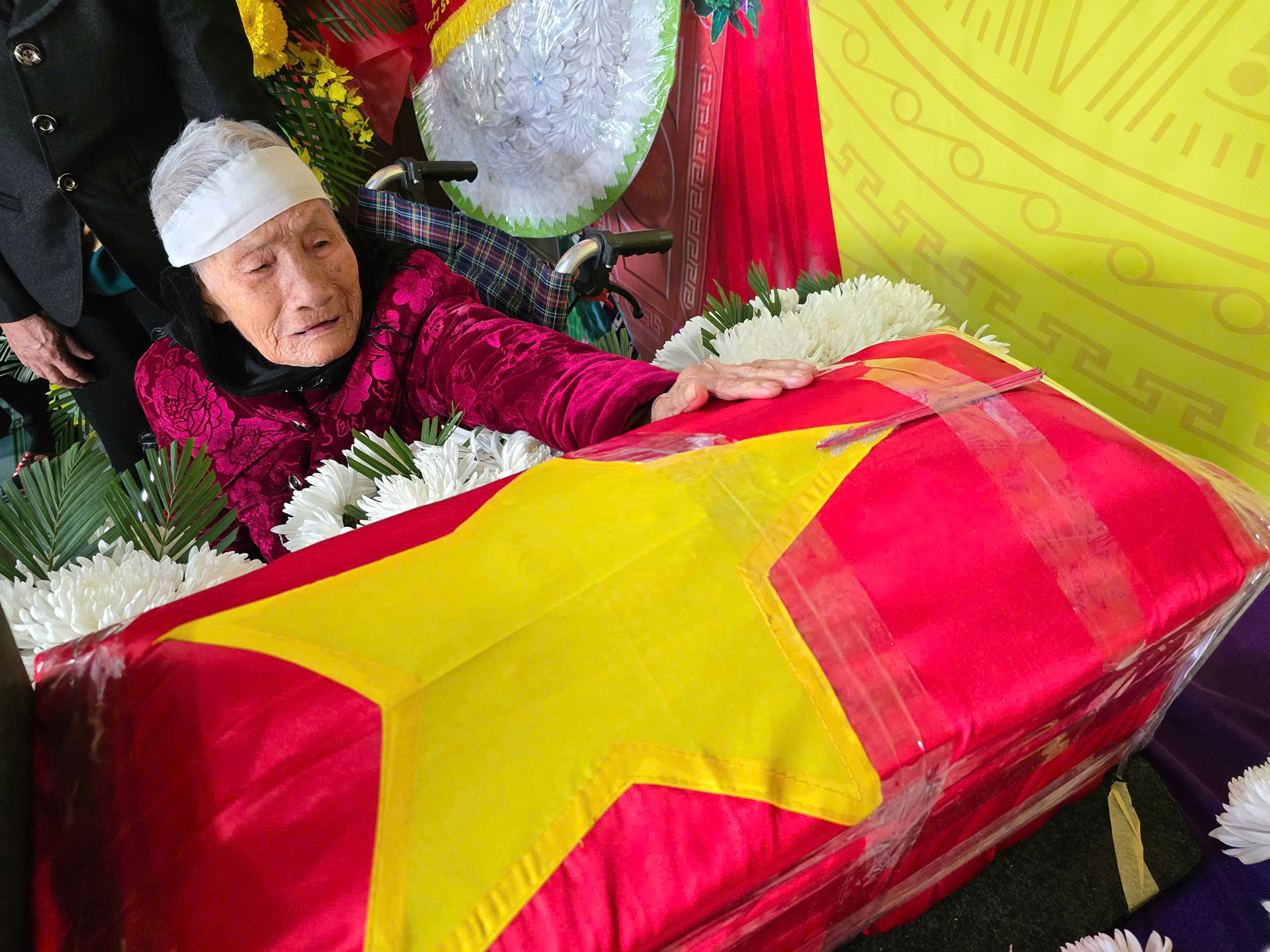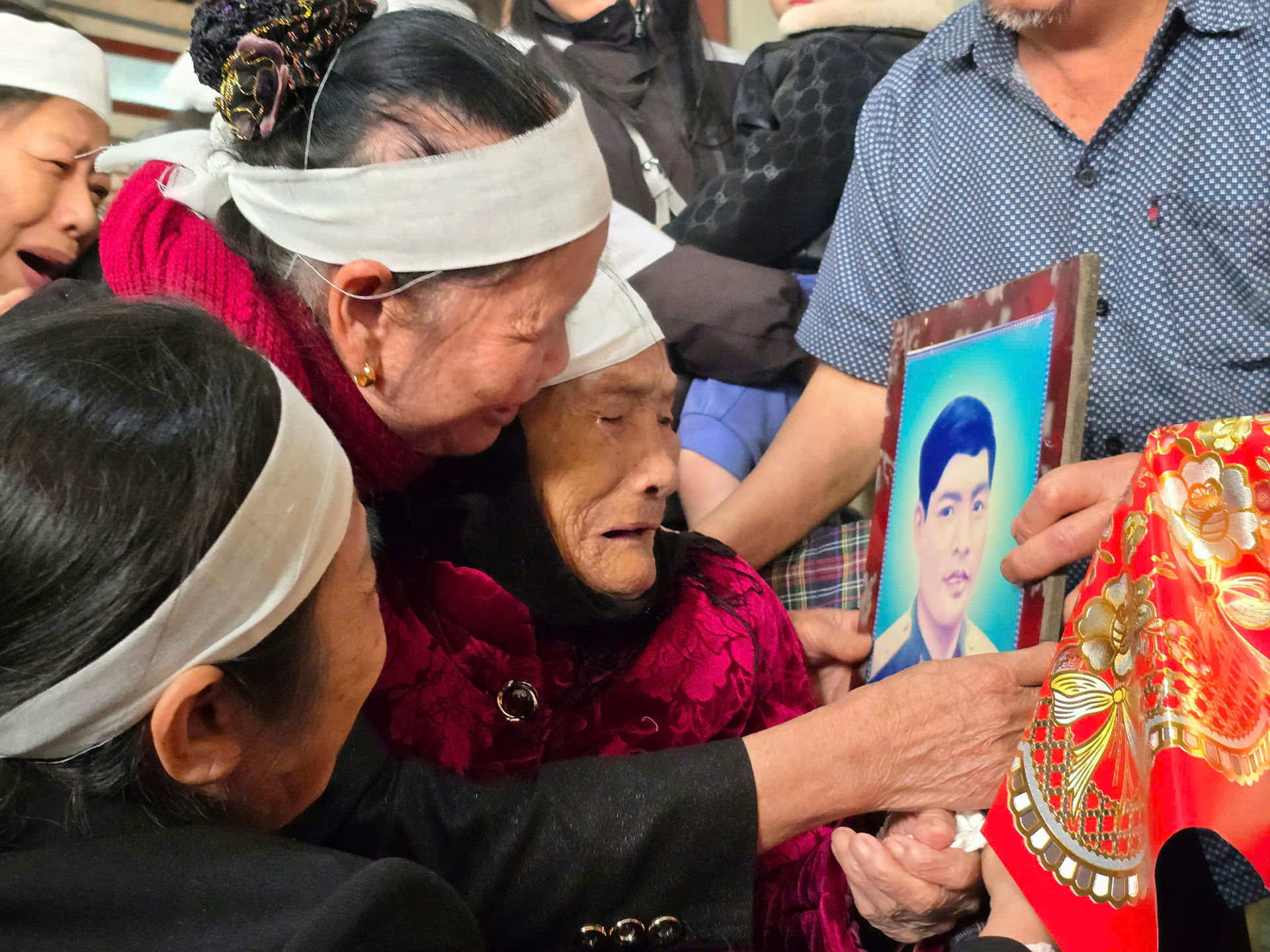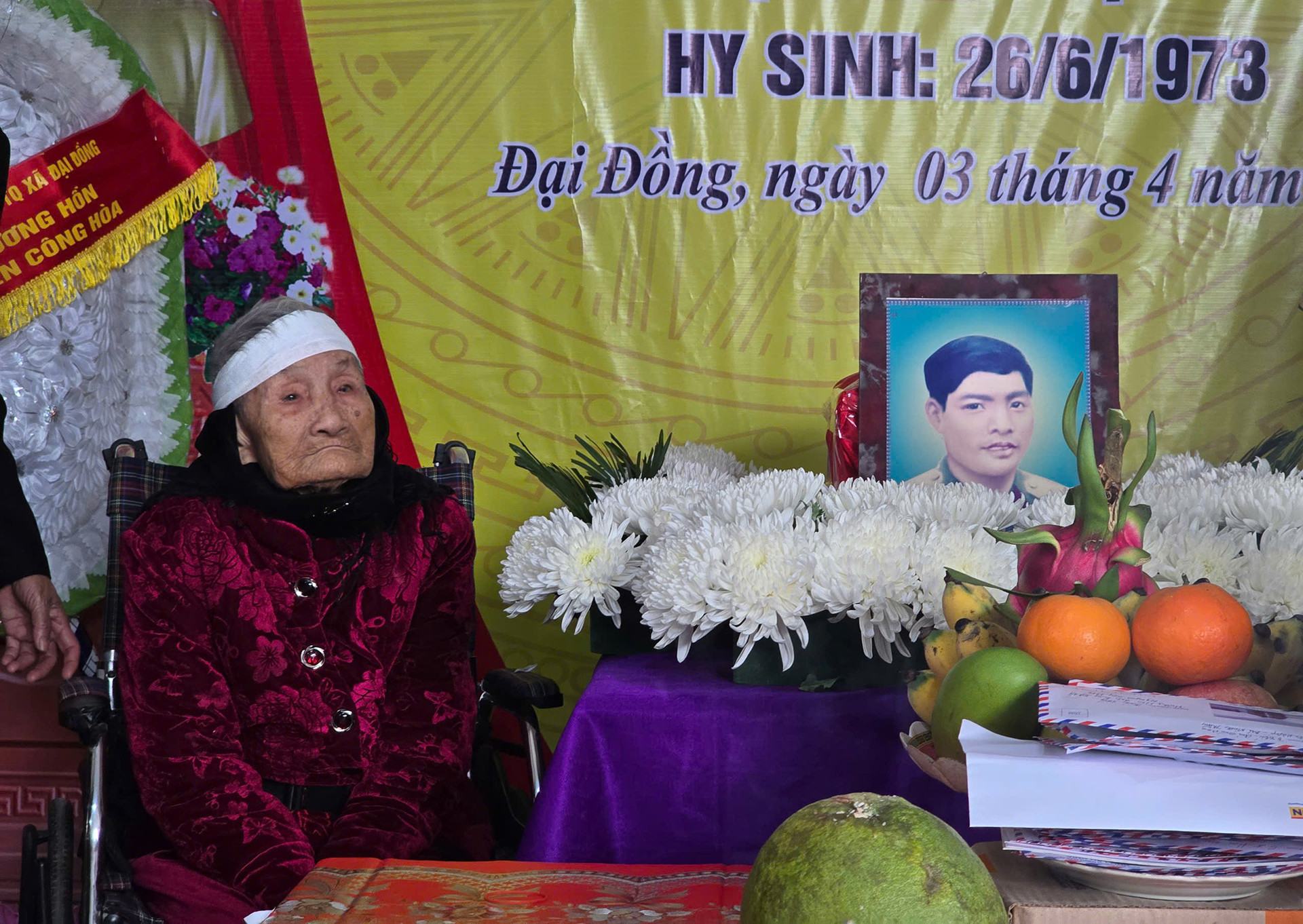Her husband passed away. One son died serving the nation. Another died shortly after returning from the army. For more than 50 years, Pham Thi Lai bore an unending grief - until the day she was finally reunited with her son’s remains. Overcome with emotion, the 104-year-old mother whispered before her son's casket: “Hoa, I’ve waited so long for you.”
Three weeks after her son’s remains were returned to their homeland, Pham Thi Lai, a resident of Dai Dong commune, Thanh Chuong district, Nghe An province, is still overcome with emotion.
After more than half a century searching for her son’s resting place, she broke down in sobs when the remains of martyr Nguyen Cong Hoa (born 1951), reburied from Road 9 National Martyrs Cemetery in Quang Tri province, arrived home. “Hoa, I’ve waited so long for you,” she cried.

Having fractured her leg in a fall last year, Lai can no longer walk and now moves around in a wheelchair. At 104, many memories have faded, but not those about her family - especially the son who died on the battlefield and never came home. Those remain vivid in her mind.
Pham Thi Lai had seven children - four sons and three daughters. Nguyen Cong Hoa was the third son, but after the two older brothers died young, Hoa was considered the eldest. The next son was named Nguyen Cong Binh, a name chosen with the hope that peace (“binh”) would soon return to the country.
In 1969, at just 18 years old, Hoa answered the call of duty and enlisted in Military Region 4. In 1971, his younger brother Binh also joined the army and was sent to the frontlines.

Two years after Binh joined the army, in 1973, the family received a death notice for Nguyen Cong Hoa. However, the document lacked details on where and how he died or where he was buried. At the time of his death, Hoa was a platoon leader in Division 968, performing international duties in Laos.
Lai’s husband died of illness in 1983. Her son Binh was discharged in 1985, but his war wounds worsened, and he passed away two years later - leaving the elderly mother in unspeakable sorrow.
With her husband and sons gone, Lai was cared for by her daughter-in-law - the widow of Binh - in their modest home in Dai Dong commune.
Since receiving the death notice in 1973, Lai had always longed to locate her son's grave, but decades of searching brought no success. Every year on his death anniversary and Vietnam’s War Invalids and Martyrs Day (July 27), she would light incense at his altar and pray: “Let me find my son's grave. Bring him home. I cannot die peacefully until he returns...”
Touched by her mother-in-law’s heartbreak, Pham Thi Vinh, the wife of Binh, began taking time to visit cemeteries and write letters to cemetery administrators asking for information on Hoa. But years of searching yielded nothing.
“I’ve helped Mother search for my brother-in-law’s grave for many years, hoping it would ease her heart,” said Vinh. “Later, when my son Nguyen Cong Quynh grew up, I asked him to continue the search. I no longer had the strength to keep traveling.”
"An end to 50 years of sorrow"

Two years ago, thanks to information from a volunteer group specializing in locating martyrs’ graves and repatriating remains in Nghe An and Ha Tinh, Quynh was informed of a grave marked with the name Nguyen Cong Hoa at Road 9 National Martyrs Cemetery in Dong Ha, Quang Tri. Quynh took a bus to visit the site.
Le Tien Dung, a member of the volunteer group, said the remains of Hoa had been transferred from Laos and buried at the cemetery alongside five other martyrs prior to 1990. “During a field trip, I came across records about these burials and noticed a name that matched the one the family was looking for, so I alerted them,” Dung said.
However, the available documents could not conclusively confirm the identity. Quynh then submitted a request for DNA testing, and in early March this year, the results confirmed that the remains belonged to his uncle, Nguyen Cong Hoa.
“When the DNA results came back, the whole family burst into tears. My grandmother wanted to visit the grave immediately, but due to her health and my travel commitments, we couldn’t manage it. Recently, his remains were brought back to our hometown, and the entire family was overwhelmed,” Quynh said.
After more than half a century of longing, the day of reunion had come. As her son’s remains were finally laid to rest on home soil, the elderly mother sobbed with relief, her lifelong wish fulfilled. No longer would she spend sleepless nights praying and waiting in vain.
Thien Luong